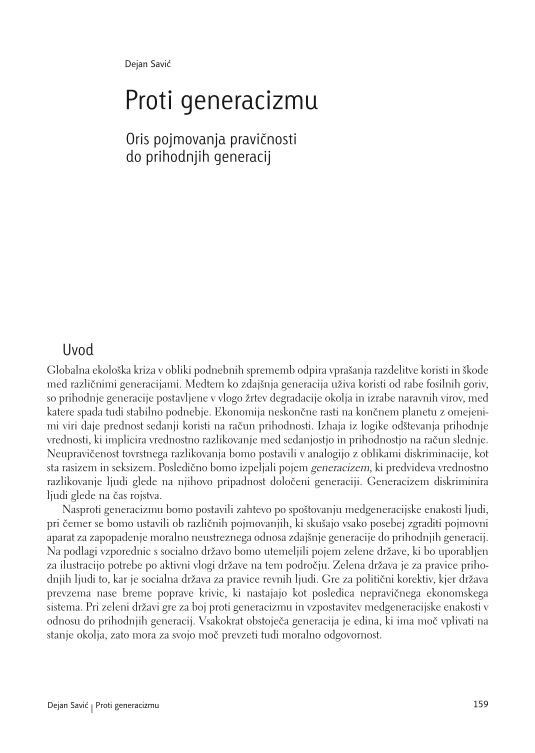Humanity faces a global ecological crisis in the context of climate change which challenges established forms of political thought and action. The discussion of justice is applied to the future, where we understand time and the natural environment as a common bond between people from different periods. We put today’s generation in a relationship with the generations in the near and more distant future. The term »generacism«, describing the current way of thinking as another form of discrimination, allows us to show the inadequacy of our attitudes towards future generations. By destroying the global environment, we create injustice towards future generations on the basis of the time of peoples’ birth. In this context, time is understood as an arbitrary circumstance, which does not suffice as a basis for discriminating between people. We defend the concept of intergenerational justice that gives the state the responsibility for implementing environmental protection measures in order to protect future generations and eliminate generacism from our society and economy. We propose the so-called green state, which bases environmental protection measures on fairness to future generations.




